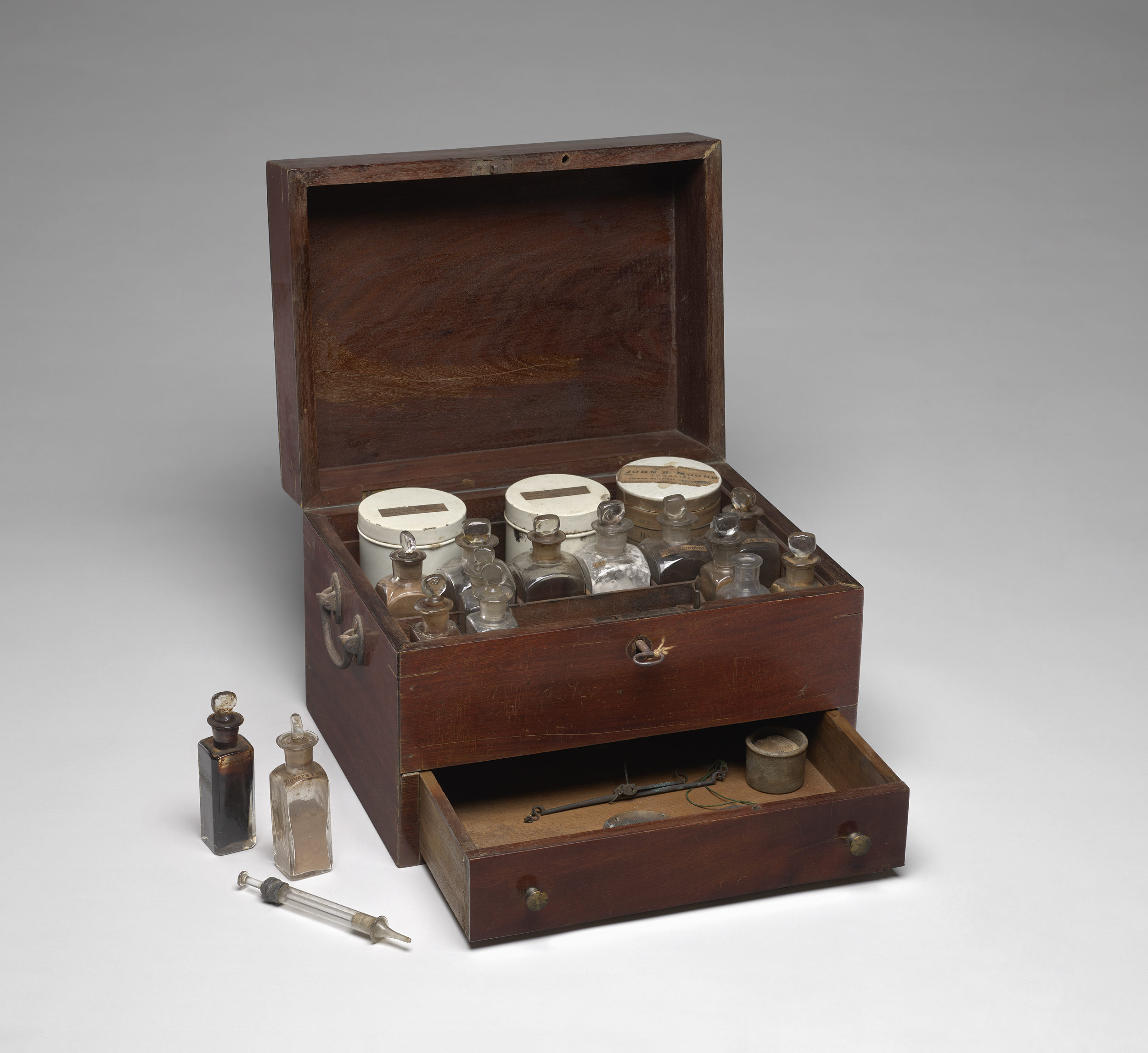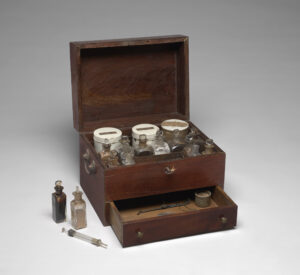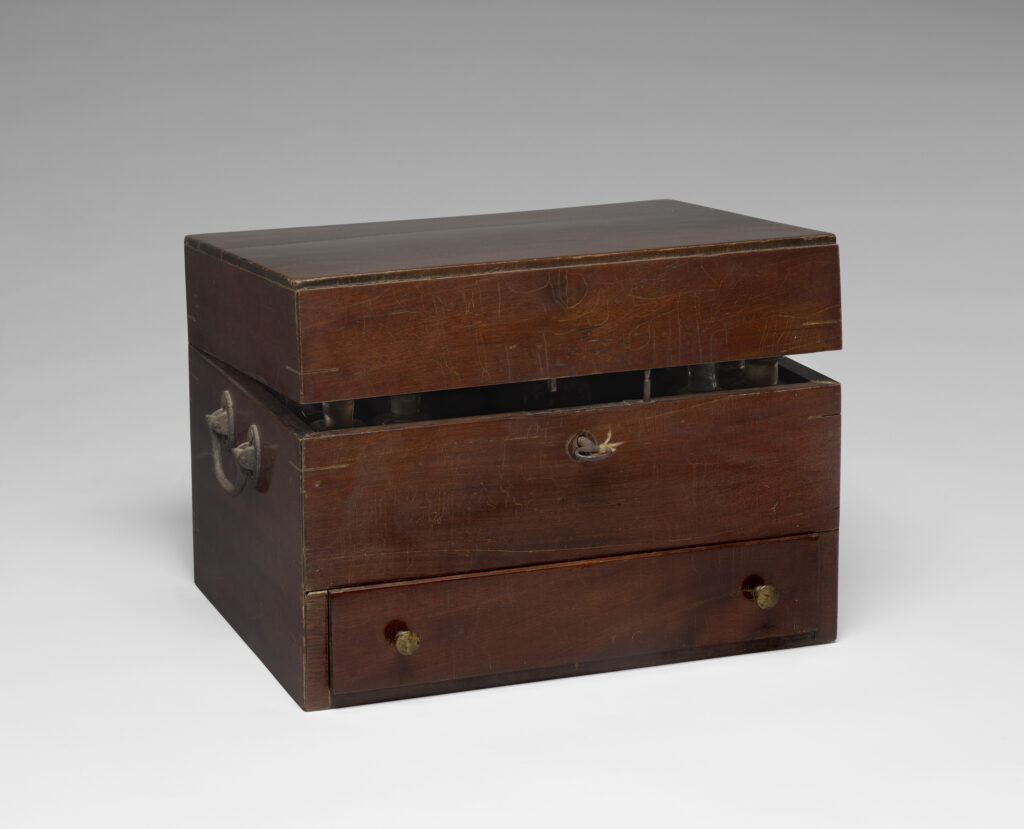


Medicine Chest
This wooden medicine chest contains different medicines inside glass vials and ironstone containers, a brass scale, and glass syringe. Portable chests like this were used by naval surgeons and surgeon’s mates to treat a ship’s crew in the early- to mid-1800s. The medicines contained within suggest some of the ailments sailors and officers experienced while at sea.
The identifiable medicines inside the chest, dating back to around the 1850s, include Cream de Tarter (most likely), Spirits of Camphor, Laudanum, White Squill, peppermint (most likely), Dover’s Powder, Flowers of Sulfur, and Mercurial Ointment.
During the first half of the 1800s, ideas of health were based on Galenic medicine, which means illness was understood as the result of an imbalance of the body’s four humors or key substances (i.e. blood, phlegm, black bile, and yellow bile). To restore balance, physicians, in addition to withdrawing blood, prescribed laxatives and medicines designed to purge bodily fluids. Some of the below medicines contained in the chest were used as purgatives.
- Laudanum: used to soothe pain from injuries, cramps, or “spasms”
- Dover’s Powder: induced sweating and was used to treat “rheumatism, dropsy, and other complaints, where a free and copious perspiration [was] required”
- Flowers of Sulfur: used to treat a variety of ailments, including, but not limited to, skin-related diseases, coughs, asthma, and hemorrhoids
- Cream de Tarter: depending on how it was served or what it is was mixed with, treated different ailments, including dropsy, skin eruptions, and fevers; it was also a popular laxative
- Spirits of Camphor: strong alcohol mixed with camphor (a chemical found in the wood of the camphor laurel tree), which acted as an antispasmodic and a sedative
- White Squill: a very powerful plant-based drug, was used mainly to treat a cough, but could also induce vomiting and act as a diuretic
- peppermint: used to soothe stomach ache and repress vomiting
- mercury-based ointments: commonly used to treat skin conditions before people became aware of the toxicity of mercury; in particular, these ointments were used to treat the lesions and sores associated with syphilis
Source: Hunnewell, John L., Plain Remarks on the Accidents and Diseases Which Occur Most Frequently at Sea With Directions For using the Medicines Contained in the Medicine Chest, Boston: John L. Hunnewell & Co., 1846.
Date Created
c.1800-1850s
Medium
Ironstone, Glass, Wood
Dimensions
[H] 9.25 in. [W] 10.25 in. [L] 13.5 in.
Catalog Number
1403.1
Credit Line
USS Constitution Museum Collection.
Terms of Use

This work is licensed under a Creative Commons Attribution-NonCommercial-NoDerivs 3.0 Unported License